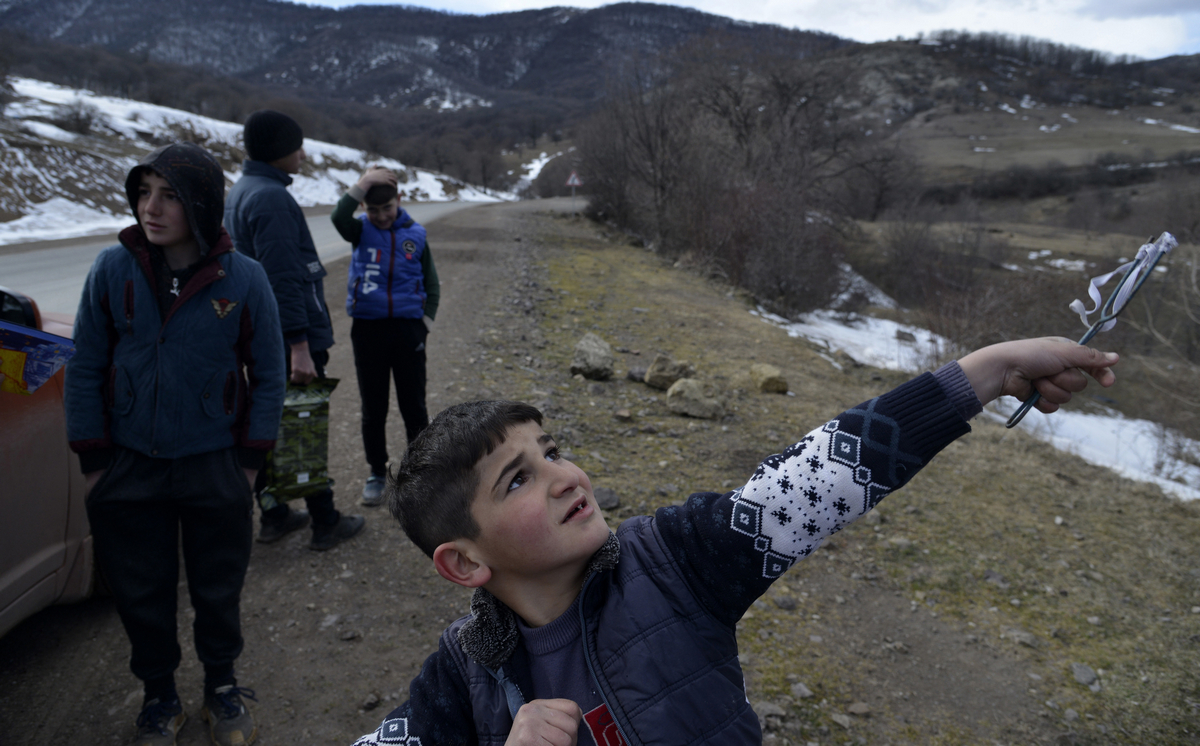The car that saved photos and other stories of refugees from Karabakh
Stories of refugees from Karabakh
Five-year-old Anna Gulyan lives in a one-room apartment with her younger sister, parents, and aunt. The family has adapted to the new housing, but the apartment in the Yerevan suburbs still remains a stranger. Their own house remained in Shushi / Shusha, in Karabakh.
“Come,” says Anna, greeting me, “come, look at how beautiful I am!”
Anna
The lively girl quickly starts a conversation with strangers. She put on a crown and dressed up as a princess. She loves to tell guests about her life, kindergarten, toys, and show her drawings.
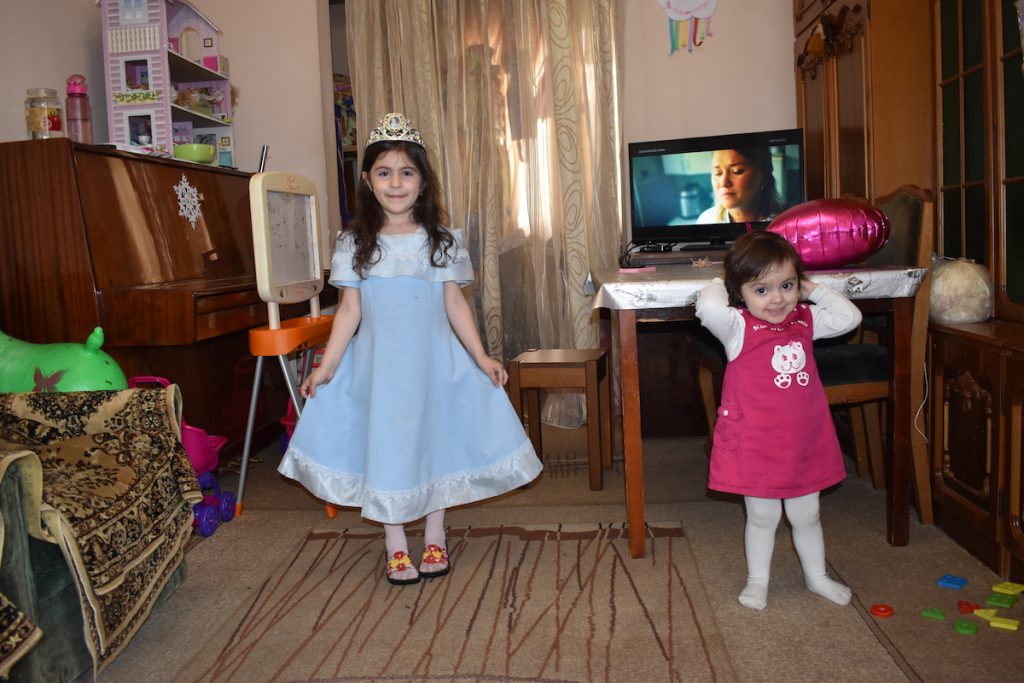
Veronica
“We are everywhere. We need our home,” says her mother, 38-year-old Veronica.
The Gulyans moved into this apartment a few months ago. Before that they lived in another rented apartment where they arrived from a temporary shelter. In this old but tidy house, everything speaks of the past, but not of the past of this family. The Gulyan family has nothing of their own here.
Veronica says they were one of the last families with children to leave Shushi during the 44-day war in the fall of 2020. Her husband Arthur was at the front, and she and her daughters – 3.5-year-old Anna and 4-month-old Nare – hid in a bomb shelter.
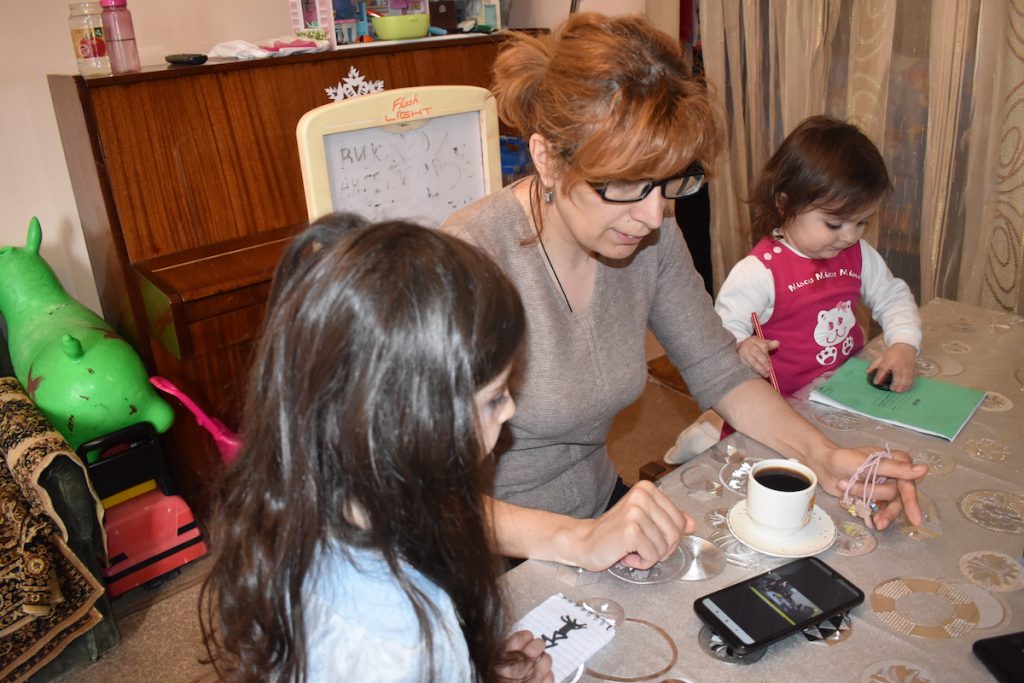
In early October 2020, when they were evacuated, she took nothing with her except boxes of formula and her youngest daughter’s diapers.
“I didn’t even think about taking anything, because I was sure that we would be back in a few days. I just wanted to take Nare’s stroller, but it didn’t fit in the car. As soon as it got dark, we left in what we were wearing and with a bag of diapers,” says Veronika.
“I even left my dentures,” adds Veronica’s aunt, who is called Aya at home. She became a refugee for the second time. The first was in 1990, after the pogroms of Armenians in Baku.
In Yerevan, Anna started attending kindergarten. Here she learned to speak literary Armenian, rather than the Karabakh dialect, and made new friends. Anna fell in love with kindergarten. Especially drawing lessons.
“This is our home in Shushi. Now our house has been demolished, but it’s okay, we will rebuild it,” she says, showing me one of her drawings.
Veronika says that earlier Anna did not talk about the war, but lately she began to often think about Shushi/Shusha and ask questions.
Adults try not to remember the war in the presence of children.
Veronica takes her daughter to kindergarten, and then goes to work. She has only recently started working and only works for a few hours a day. Her salary is small, but she is satisfied with this, as she removes part of the financial burden from her husband’s shoulders.
- Why is Shusha/Shushi so important for Azerbaijanis and Armenians?
- “When fighting is ongoing, you don’t choose who to save” – a story of doctor Hakob
- A story of a clay donkey that survived Karabakh war
The house where the Azerbaijani family now lives
Recently, acquaintances sent Veronica a link to an Azerbaijani TV report showing an Azerbaijani family. Veronica says that the report was filmed in her apartment.
“I think this is not true, because no one lives in Shushi now. But even knowing this, I can not watch it calmly. Only the cups are not ours, everything else is exactly as we left: the sofa, the bedspread, the vase. All mine,” she says.
In this report, Azerbaijani refugees from Shushi talk about how happy they are to return to their hometown and how they miss the local air and nature. The city is not fully populated, but the families of some military and employees of the only supermarket in the city, hotels, and cafes are allowed to live there – editor’s note
“Shushi was such a safe and impregnable city that people from different villages and other cities brought their property to the houses of Shushi acquaintances and relatives so as not to lose it because of the war. But it turned out that everyone lost everything, ” says Veronica.
In Shushi/Shusha they lived not far from the mosque. Arthur himself renovated their apartment. They bought new appliances and put a new large closet in the living room.
“Arthur said that we shouldn’t spend money during the pandemic. But I insisted on buying it. The closet was large, we would put all our things there. We had it bought and delivered, but could not use it for a single day. I certainly don’t regret it. People have lost the most important thing – their lives, but still, sometimes I think: “I wonder what they did with this closet,” says Veronica.
In addition to working and caring for children, Veronika also learns the basics of social work. She says she already loves this profession and even if she cannot find a suitable job, she will at least be able to help herself and many others like her.
Nare
The youngest daughter of Veronica, Nare, is already two years old.
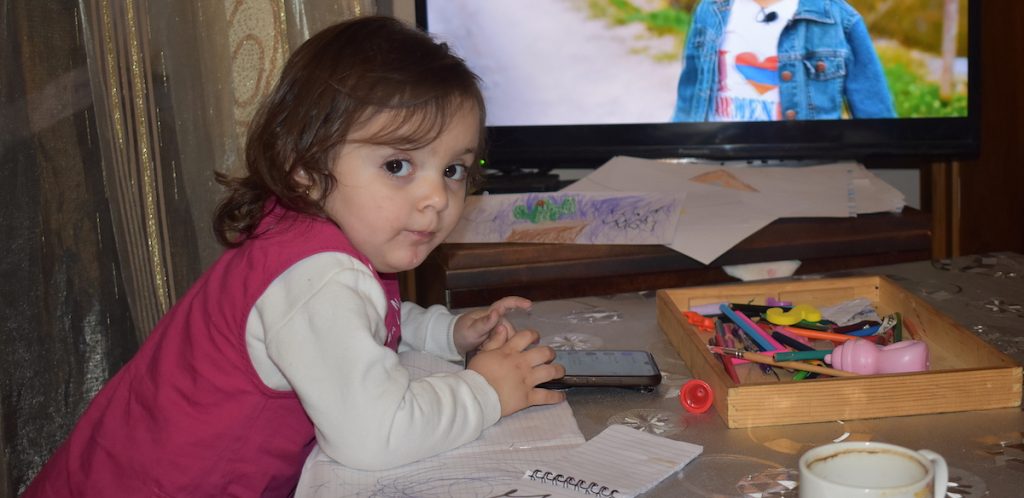
“Thanks to Nare, we were first given a place in a temporary shelter, and when it closed and we didn’t know what to do, the director of the shelter took us to live in his mother’s apartment. Seeing Nare, people said: “How can such a child be left homeless?” Veronica says.
“Nare was the joy of our shelter. Even in the most difficult times, it was enough for Nare to smile with her wide smile, for everyone’s heart to become light. Aya sometimes scolded me for giving the child to strangers, she’d say, it’s dangerous. But back then, everyone needed Nare, ”says Veronika.
She turned five months old at the shelter. She grew up somehow imperceptibly and was baptized after the return of her father, wounded in the war.
Arthur and the car story
Arthur says if it weren’t for his daughter and Veronica, he would have gone crazy. In Shushi/Shusha, where everyone knew each other, there was no lack of communication. However, in Yerevan, Arthur is mostly silent.
A few months ago, he took a job in an ice cream shop. The days have become more eventful, but he is still lonely in Yerevan.
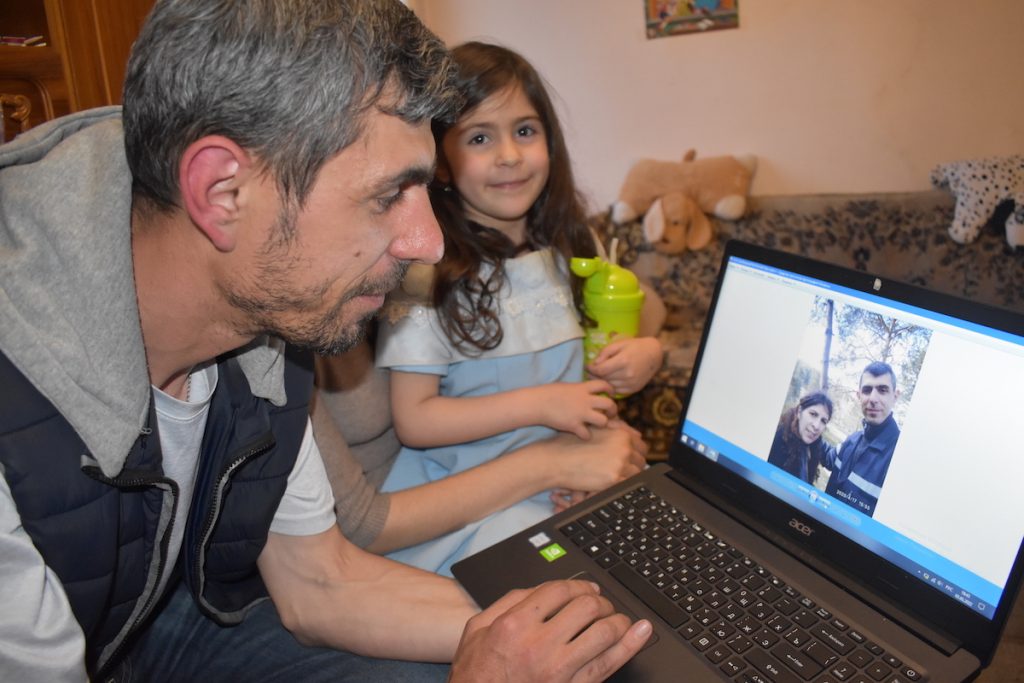
Artur says that when the war broke out in 2020 and the family had to be sent to the basement, to a bomb shelter, he suddenly remembered that he needed to keep the passports and a flash drive with family photos. And put them in the trunk of the car.
Arthur saved up money for years to buy a car, but during the war he gave the keys to his friends for the needs of the front․
“We were in Yerevan when they demanded 120,000 drams [about $300] for Anna’s operation. I thought, if only there was a car, we would sell it and have money,” says Artur.
During the 44-day war, Arthur was surrounded three times, the last time in Hadrut. He was wounded twice but survived. Out of the group of 30 people, only six were able to leave Hadrut.
Wounded, he ended up with his family in the shelter. He says that even when he was able to move around on crutches, he was ashamed to leave the room․ Only women lived in the orphanage, and he was the husband of one of them, who had returned from the war.
After Arthur returned and the war ended, the Gulyans received a phone call and were told that someone they knew managed to take out Arthur’s car and deliver it to Vardenis. He hid the key under a roadside stone, showing the place to a close friend of Arthur.
That friend immediately went to Vardenis and found the car that had gone through the whole war and was damaged in several places. It reached Arthur, bringing back the flash drive in the trunk, with photographs of the house in Shushi/Shusha and his daughters.
The Gulyan family was included in the list of those who should receive new housing in Stepanakert (Khankendi). No one knows when this will happen, but one thing is clear to Arthur: until the security issue is resolved, he will not endanger his daughters․
“I participated in all wars. I am not afraid for myself. But I don’t want to fear the sound of exploding shells when my children are several meters away,” he says.
Stories of refugees from Karabakh












